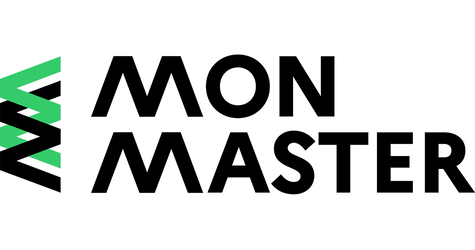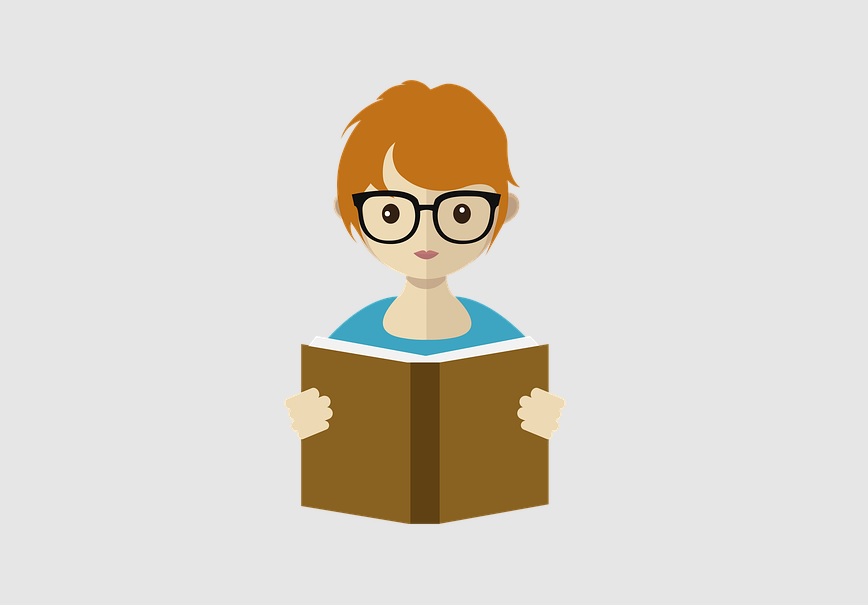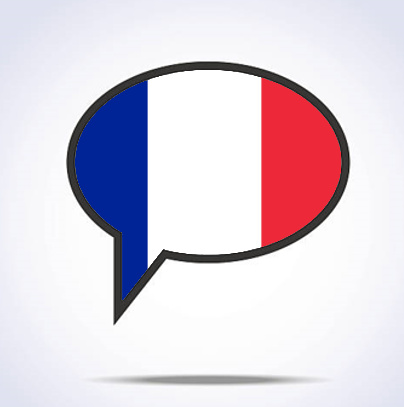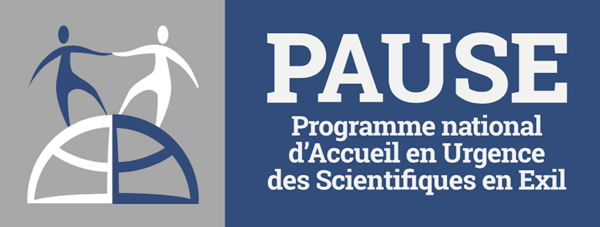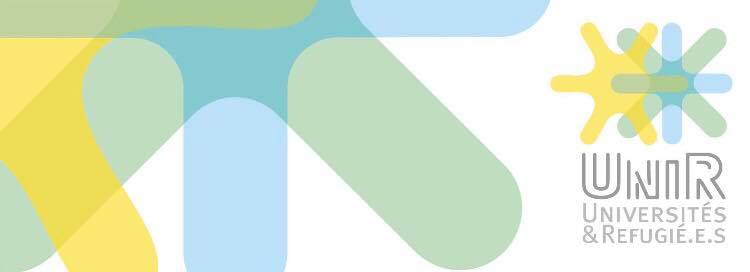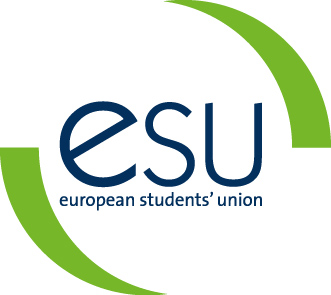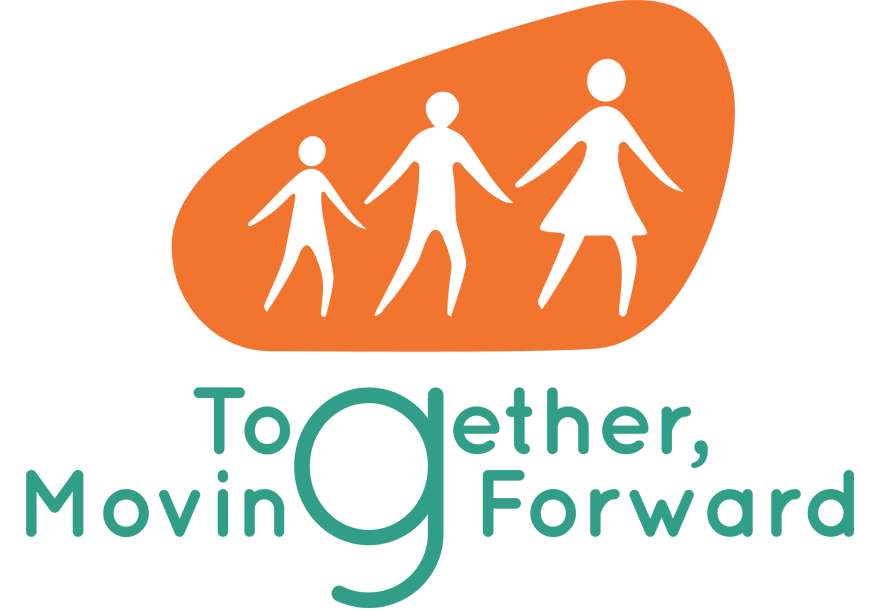The voice of people in exile for better access to higher education in France.
The word “union“ means gathering exiled students from their countries for political, economic, humanitarian, or climatic reasons. This union is a non-profit organization. It shares and supports the activities and values of the French Students’ Union.
Student guide
Mon Master: The unique platform for applying for a master’s degree beginning in March 2023WHAT IS “MON MASTER” PLATEFORM ?
Mon Master is the new single platform that will replace the e-Candidat procedure for applicants in master’s degree starting in March 2023. Unlike the previous method which required submitting a file on the e-Candidat platform of each university, From now on everything will be done on the unique Mon Master site created by the Ministry of Higher Education and Research (MESR). It is an equivalent of Parcoursup for a master’s degree level with over 3,500 courses and 8,000 specializations.
This platform allows you to apply and to find out about the various training courses available (particularly the degree of selection) for a master’s degree in France and, according to the ministry, you can also benefit from the help of the rectoral services if you do not obtain a positive response.
Following the reviews of the files by the universities, you can obtain 3 types of responses: refusal, waiting list, or admission. If you receive an admission proposal, you can reject, accept, or accept provisionally while waiting to be admitted to another course or major.
This new procedure is supposed to facilitate and accelerate the application process to a master’s degree program by simplifying the procedures, providing a better understanding of the spots available, and setting up a single national calendar. However, the Ministry of Higher Education and Research emphasizes that the files will not be processed by the algorithm: they will be processed by the administrative services of the universities only.
WHAT ARE THE DATES FOR 2023?
From 22 March to 18 April, 2023
Submission of applications
From April to June 2023
Reviews of applications by the institutions.
From 23 June to 21 July 2023
Admission phase (transmission of admission proposals to applicants and applicants’ response to these proposals).
Beginning 23 June 2023
After acceptance of an admission proposal, administrative registration with the institutions, according to the schedule established by each one of them.
WHAT ARE THE TERMS AND CONDITIONS FOR ADMISSION TO A MASTER’S DEGREE PROGRAM?
To Apply on Mon Master, you must:
Have a baccalaureate +3 years of higher education (bachelor’s degree or equivalent).
Come from a member country of the European Economic Area or reside in France.
Submit a complete file within the given deadlines,the following items for all the trainings will be present on the platform interface ; CV, Post-baccalaureate courses, the transcript (it is not mandatory to provide it with a sworn translation), internships performed, and professional experiences. All the documents must be in PDF format and must not exceed 2MB!
Institutions will then request a list of documents (of their choice) to be provided in PDF format (cover letter, supporting documents, CV in English, etc.). This list will be specific to each training.
Make a maximum of 15 wishes per student in initial training (1 wish = several possible routes) plus 15 wishes in apprenticeship
The candidate may subsequently be called for interviews.
Applicants who are NOT concerned by Mon Master procedures
Those of foreign nationality (outside the European Economic Area) whose country of residence benefits from the Études en France
Students authorized to repeat their first year of master’s degree.
Students wishing to access the few schools or training courses that are not on the platform and that must be contacted directly.
Applicants wishing to be admitted to the first year of a master’s degree through a validation of higher education (VES); moreover, the procedure for validating professional experience (VAP) is not managed by the platform.
Students whose course automatically provides admission to the first year of a master’s degree in engineering (CMI).
Students in continuing education or resuming studies must apply via the e-Candidat in certain institutions (e.g Sorbone-Paris-Nord). You must prove that you have left the waiting lists of the Mon Master platform via an attestation (made by the platform)
The course of the admission phase:
Possible responses from universities: admission, refusal, or waiting list (with the spot number on the waiting list so that everyone can situate themselves and evaluate their chances).
Note that admission is NOT automatic, it is done after the reviews of the file and/or on competition or following an interview and on the condition of having found a contract in the case of a work-study training.
Time limited to respond gets shorter (for a proposal received before June 24, you have until June 26 to decide and from June 24, you will have approximately 36 hours to respond) to accept or not the admission proposals, after this time it will be considered that you have refused the proposal and your place will be offered to another person.
In case of refusal: there is a possibility of asking the reasons for the refusal from the head of the institution up to one month after having obtained the answer.
Special cases :
– If the candidate does not receive an admission proposal: the possibility to contact the rectorate: the procedure here (Note that the conditions have been tightened since the start of the 2021 school year and that this is still not happening)
– If the candidate is late, it is possible to contact the training manager who may or may not choose to accept the application. This approach must strictly remain exceptional and less likely to succeed!
– If the waiting list is exhausted starting September 1, each institution will have the opportunity to conduct their own recruitment. Students can make spontaneous applications (but the modalities will be decided by each institution).
– There is a “Mobility Master” grant for students: you must be a scholarship holder and enrolled in a bachelor’s degree at the university in France the year before the master’s degree.
OBSERVATIONS of Union des Etudiants Exilés
Derogations from this new application procedure have been established by decree of the Ministers responsible for higher education and the departments of outre-mer for certain specific training courses, certain particular calendars or certain students having a special status.
More specifically, the decree of the ministers responsible for higher education and the departments of outre-mer of 22 February 2023 specifies that candidates of foreign nationality (with the exception of citizens of the European Economic Area countries, Andorra, Switzerland or Monaco) whose country of residence is covered by the Etudes en France program, are subject to this project.
However, this program is intended for foreign students residing abroad. It aims to process their application at a French university and to follow up on foreign students.
It would seem that it has not foreseen how refugee students, stateless persons or asylum seekers who reside in France and wish to continue their studies in France will be able to apply for the second cycle of higher education. It is also important to note that there is a special procedure for exiled students to apply for the first cycle of graduate studies in France, but it is uncertain if this procedure is also applied for the second cycle of graduate studies.
Even if specific derogation procedures are not provided for exiled students, they can contact the person in charge of training directly, in case of difficulties.
However, we remain vigilant for any blockage that could make it difficult for exiled students to apply and we recommend the following measures:
Recommandations of the UEE regarding exiled student candidates
Publish, in particular through a circular, clear derogation procedures for university institutions regarding exiled students and the specificities due to their situation (such as their academic path sometimes being fragmented, digital precariousness etc.)
Introduce a suitable and dematerialized support for exiled students with references who will be in direct contact with exiled candidates to help them in the application process.
Put in place derogatory arrangements such as the Adapted Admission Application for exiled people.
Introduce a derogation measure for the documents requested and/or expand the list of documents to be provided because exiled students do not always have their diplomas or documents requested with them because of their exile journey or their recent arrival in France.
Extend the application period for people who would be untimely because of their exile journey.
Etablir une procédure claire concernant l’équivalence des notes pour les diplômes non-européens
Ensure that the procedure for entering the rectorate for applicants who have only received refusals is adapted to those in exile.
Be vigilant and not reproduce the frequent discriminations during the selection of a master’s degree discovered by a recent study, which could affect some exiled people who apply: candidates of Maghreb origin according to their name are 12% less likely to obtain information about a master’s degree than a candidate with a French-sounding name. This goes up to 30% for the most famous master’s degree.
Discriminations à l’université : pour la première fois, un testing cible 600 responsables de Masters (radiofrance.fr)
Titre:Présentation d’étude – Sélection à l’entrée en master : les effets du genre et de l’origine (univ-gustave-eiffel.fr)
Explaining video (in french): Tout savoir sur Mon Master en 2023, la nouvelle plateforme nationale – Thotis Master – YouTube
Link to Mon Master platform here [...]
The University language diploma for students in exile (DU FLaVi) of the University IUT University of Paris – Rives de SeinePresentation
The Passerelle University Diploma in French Language and Culture is offered to students in exile in France regardless of their status (refugees, asylum seekers, beneficiaries of subsidiary protection, etc.).
This DU benefits from the support of the DRIEETS Île-de-France and companies such as BNP Paribas and the AUF (Agence Française de Francophonie).
This training is offered only as a classic initial training
Goals
Train students in French as a Foreign Language (FLE) by allowing them to acquire level B2 of the CEFR in French
Developer of multicultural teamwork skills
Finding your bearings in the economic, legal and social environment
Obtain assistance with integration either at university or in the labor market
How are the studies organised?
This training takes place at the Paris IUT – Rives de Seine and includes 20 weeks (18 weeks of classes and 2 weeks of seminars), from January to June, at a rate of 3 days a week, from Monday to Wednesday inclusive.
Training content
The 350 hours of the FLaViC are distributed as follows:
Module 1: French Living Language for professional purposes (140 hours, broken down into: 70 hours of oral comprehension and expression and 70 hours of written comprehension and expression)
Module 2: French economic, legal and social context (50h)
Module 3: Theatrical communication techniques project (to promote public speaking) (60h)
Module 4: Socio-cultural project linked to the discovery of the associative world (survey of structures, field visits, etc.) (40h)
Module 5: Collective and intercultural activity seminars (2 weeks, i.e. 6 course days, 30 hours)
Module 6: PPUP (University and Professional Personal Project), i.e. orientation assistance with a view to continuing studies (10 hours) and personalized and individual follow-up for assistance with disciplinary academic integration (20 hours per student with a teacher of the discipline chosen for further studies).
More information in the training offer of the Paris Cité University, can be found HERE.
How to apply?
To apply you would need the following documents:
Residence permit OR passport (a proof of identity)
Attention of level of the French language B1 acquired
2 personal photos
Certificate of accommodation OR electricity factor
Justification of BAC level studies – minimum -, or more (diplomas and transcripts)
Your up-to-date CV in French
Your motivation letter OR at least two paragraphs explaining your situation and why you want to register for this training.
Applications are submitted directly online on the eCandidat platform before October 15, 2022. [...]
Liability insurance for studentsDid you unintentionally break a college friend’s glasses or accidentally hurt someone? Do not panic, if you have civil liability insurance which, let us remember, is different from home insurance, this one will have you covered. This is also the case for almost all of the damage you could be responsible for during your student life. Here are some details.
Liability insurance, a protection that covers all incidents of private life?
Liability is required from the first enrollment in most higher education institutions. It is also compulsory insurance during internship. “It covers you for bodily, material and immaterial damage that you risk causing to a third party in almost all of your private life : at university or school, in your sports activities and in your jobs (private lessons, babysitting, etc.) “, specifies Benjamin Biale, general manager of the student mutual health insurance HEYME.
The civil liability guarantee replaces the person responsible to compensate the victim. In the absence of insurance, you will have to take care of the compensation yourself.
Here are some examples for which Civil Liability covers you:
You involuntarily break your teacher’s projector;
During the internship, the equipment loaned by the company have been stolen from you;
You inadvertently jostle a comrade, who breaks his arm.
What are the guarantees of a Civil Liability insurance contract?
Civil Liability covers three types of damage to others : bodily (physical injuries), material (breakage of an object), or immaterial (attack on the integrity of a person or act resulting in financial loss). The contracts also cover damage caused, for example, during summer vacation. All for very affordable prices. “Our Civil Liability pack costs 13 euros by year,” says Benjamin Biale.
On the other hand, intentional damage, those caused to yourself (covered by the subscription to complementary health insurance and/or to an Individual Accident guarantee insurance), and those occurring in a professional context, are excluded from this guarantee. Also you have to note that, the practice of extreme sports, or damage caused to a third party with your car or your new electric vehicle is not covered by Civil Liability insurance. You must then take out a specific insurance contract.
Personal insurance also valid for internships?
Yes. Student liability insurance covers damage caused to others during your internships in France and abroad, and internships / call duty that are carried out in the medical and paramedical sector.
What is the difference with home insurance?
This guarantee can be included in several types of insurance contracts, in particular in multi-risk home contracts. But these comprehensive home contracts do not cover all aspects of student life, such as internships or jobs. This should be checked by looking closely at the guarantees included in the comprehensive home insurance contract by the insurance company. “If it is possible to go through traditional insurers, it is better to take out student insurance, because these contracts are designed to optimally cover the scope of your activities“, advises the CEO of HEYME.
The civil liability certificate: who can ask you for it?
Mandatory
University / school. The liability insurance certificate is one of the mandatory documents to validate your registration. This insurance is also required for any school trip outside the establishment (cultural visit, language trip, etc.).
The company that welcomes you for an internship. On the other hand, in an employee contract, it is the company that necessarily takes care of this coverage (professional civil liability).
Optionally:
Your occasional employers (private lessons, babysitting, etc.).
Club or sports course. But this insurance is often included in the price of the subscription or license. However, remember to check the details of the activities covered by the insurer. [...]
The UEE offers you French language workshopsIntroduction:
It’s summer 2021, but you still want to practice French?
We are offering French workshops this summer to help you improve your French. Learn and practice with teachers!
This summer, French trainers are offering French language workshops 6 hours a week, to improve your written and oral skills in French.
These workshops will take place all summer. To register, complete the form, and we will offer you an individual meeting at our office, the Refugee House.
The schedule:
Monday, Wednesday, and Friday
10:00a.m.-12:00p.m., or 2:00p.m.-4:00p.m. (depending on your level of French).
Registration details:
Here is the form to fill out, and we will get back to you for more details.
https://forms.gle/tPTfU7eNnT1997t48 [...]
Study Cinema in FrancePrepared and written by Adonis Bondok
The study of cinema in France is available in several ways. One of the most famous and easiest ways to register is at the universities. In France, there are more than 30 universities offering the license.
In Paris and its suburbs, there are around 5 universities, including Paris 8 in the city of Saint-Denis, Paris 3, Paris 1, and Paris 7.
The University of Paris 8 is one of the most important universities thanks to the excellent teaching staff, the diversity of lessons, and the consistency of quantity between theoretical and practical materials. There is a technical services office that allows the student to borrow photography equipment (cameras, microphones, lighting…) within the university framework. A montage room is also available two days a week during to work on projects. Cinema Hall is available to watch student movies and host movies from abroad, in addition to a library with DVDs and CDs of movies, music, interviews, and 14 large screens. It is the university that accepts the highest percentage of ex-pat students in its classes.
What is Cinema License 3 in Paris 8?
Highly based on theories such as film analysis, cinema history, cinema aesthetics, script, economy and production, cinema theories, etc…
They have practical materials such as directed exercises, and intensive courses in audio, photo, and montage given by specialists in the world of film work.
The material during the three years remains the same as the research topics change according to each university professor.
The student is given a wide knowledge of cinema and media which allows them to be able to present a master as a researcher and then apply for a doctorate. Students can also present a master as a director (master création). Or like many students, you can start working after, doing the internship that is mandatory from the second year of the school.
This job can be:
– A photographer, a camera assistant, a voice assistant…
– Post-Photography (Post-production): and montage of audio and photo.
– Working on TV channels that are large in France (technical or office)
– Film production companies.
– At a movie show (Projectionniste)
– Technical work in theatres (Lighting, sound, and image).
After the internship, students either sign a contract with the company and stop at the bachelor’s, or the company accepts that they work as a master and study master during their work.
Master :
A few universities that offer master création in Paris including Paris 8. Every year, 60 people are accepted after studying their file, which must contain a project for a film. If the student is accepted, he is accompanied by a university professor (project official) during the two years of study with the aim of writing the script and directing his film. In addition to working on short films to practice and learn about cinema career more professionally. Of course, it is not without theoretical lessons that aim to link the process with the theories of cinema.
There is also a similar master’s presented by the University of Paris 1 under the title master scénario réalisation production. For the master recherche, the application is similar. The student is presenting a master letter with a detailed explanation of their project. In two years, the student studies in theory and completes his master letter.
In addition to Paris 8, the University of Paris 3 is one of the most important universities in the field of film (research) as a result of having a teaching staff of great cinema.
Paris 8 offers a third diploma in the field of cinema (Master valorisation des patrimoines et audiovisuels), especially on the study of the film archive, working on the conservation, restoration, and publishing of film, audio, and visual works in cinemas, laboratories, museums, and film distribution companies. The student is allowed to acquire the ability to work on the film archive: Indexing, filing, restoring, and legal questions. A very fun study for those who are excited and interested in film research, this job offers an opportunity to travel and explore the archive and work with museums and cinema libraries in France and the world.
Note: The student is only entitled to study masters (Master création et master recherche) if the university is approved.
Paris 8 is also open to the student not only studying cinema, but also other specialties such as dance, theatre, music, and philosophy. There are also grants available for students who take classes in these fields and work on different projects. In addition, many language courses are taught by choice (English, French, Arabic, Italian, Chinese, Japanese…)
If you have any questions, please put them in a comment so everyone can benefit from the answer!
Link to a French website with information on cinema studies in France, with lists of university names and addresses.
http://www.cinemadfilms.com/pages/cinema-et-audiovisuel/universites-licence-et-licence-professionnelle-cinema-audiovisuel-arts-du-spectacle-theatre-image-son-arts-de-la-scene-multimedias.html?fbclid=IwAR3_rlaZ5fFo_Mkc9uzZBXV3eHffjmCLcqj0sCuA1CjauaDdKQbrt0eotxU
Link to the website for Paris 8.
https://www.univ-paris8.fr/-Licence-Arts-du-spectacle-Cinema-571-?fbclid=IwAR1ZAGiG1ZuikWSKmvtJajPKJBVucNBzNQi7vay_HPrUnC7UqtWkQDtATCM
https://www.univ-paris8.fr/-Master-Realisation-et-creation-627-?fbclid=IwAR1qpdmJ7dFnE7FpQlamt97_p-tfCaEuIfhdMZvfqBmvVSXviPWDqzRJXGk [...]
Theater Studies in FranceIn this article, we will overview the possibilities of studying the professions relating to the stage and the organization of shows; schools and other parallel paths.
I. The National Schools
The national schools are the most recognized but also the most difficult to access.
There are 10 National Schools of Higher Education that are considered the profession’s royal roads, and require prior experience in the theater world.
These schools do not limit themselves to the profession of actor. One school, ENSATT, in particular, offers training in costume design, lighting and sound design, directing, and stage design.
Other less prestigious national schools also provide quality education. The Theatre School of the National Theatre of Brittany-Rennes trains students in the heart of the theater and allows them to adapt and integrate more easily into the environment.
II. The University
Universities offer training that is more theoretical than practical. However, they often offer the opportunity to go on stage or to participate in the show through associations and initiatives launched by students.
Students are trained in research and directing, but they also enroll to prepare for school competitions (acquiring a general culture that is welcome).
III. The Conservatory
The national conservatory provides teaching of dramatic art through theoretical knowledge as well as a teaching of comedy.
However, this training is only accessible under certain conditions and through an entrance exam.
Municipal Conservatories exist, which are less selective but provide theater courses that allow acquiring a quality experience.
IV. Private Schools
Private schools are many and varied. Unfortunately, no certification exists for these schools, so the selection is less rigorous and the entry is easier. Some are recognized by the profession, such as the Florent courses.
A list of the theater schools and universities :
Higher Schools :
The Superior School of Dramatic Arts of the National Theater of Strasbourg
The National Superior Conservatory of Dramatic Art in Paris
The National Higher School of Theater Arts and Techniques
Regional School of Actors of Cannes
School of the Dramatic Center of Saint-Etienne
National Conservatory of Dramatic Art of Montpellier region
National Theatre School of Brittany
Higher School of Dramatic Art of the City of Paris
Higher School of Dramatic Art of the Theater of Nord-Pas-de-Calais
Universities :
Vincennes Paris 8
Sorbonne nouvelle Paris 3
Paris X-Nanterre
Regional conservatories :
https://www.culture.gouv.fr/Sites-thematiques/Musique/Organismes/Structures-d-enseignement-et-de-formation/Les-conservatoires-CRR-CRD-CRC-CRI
Sources :
https://www.letudiant.fr/etudes/ecoles-specialisees/les-4-voies-pour-acceder-aux-metiers-du-theatre-16567.html
http://etudinfo.com/ecole/ecole-de-theatre/ [...]
Scholarship
The National Emergency Support Program for Scientists in Exile (PAUSE) 2023-2024The National Program for the Emergency Support of Scientists in Exile (PAUSE) has launched a new call for applications. The deadline for the call is 30/September/2022.
Who is eligible for the program?
Foreign researchers and artists from all geographical areas (outside the European Union) and disciplines are eligible if they meet all of the following criteria:
Provide evidence of doctoral student, researcher, research fellow or artist-teacher status in their country of origin;
Be in an urgent situation due to the security situation in their country of origin and/or persecution or fear of persecution on account of their ethnicity, religion, political convictions, opinions, sexual orientation, or the content of their research and/or teaching;
Be forced to go into exile from their country of origin or have left their country of origin less than three years ago.
Applicants must be 65 years of age or under at the time of application.
If you have identified an applicant who does not meet all of these criteria or who has special circumstances, please contact us : pause@college-de-france.fr
How much funding is available?
The co-funding allocated depends on:
the status and experience of the applicant
ththe existence of a social support project by the host institution
Funding levels:
up to 20,000 euros for doctoral students and research assistants (category 1).
up to 40,000 euros for postdoctoral researchers, lecturers, and research engineers (category 2).
up to 60,000 euros for university professors and research supervisors (category 3).
These funding categories do not apply to artist applications. The budget requested by the institution will be reviewed on the basis of the applicant’s experience and the hosting project.
The amount allocated is limited to 60% of the total budget submitted by the institution.
How long does co-funding last?
Your project will be funded for a maximum of one year. We advise you to present a hosting project for a year, or for a minimum of at least six months.
Funding can be renewed once. Your institution will be required to submit an application for renewal. It will be evaluated on the basis of the progress of the research and results.
Funding may be available for a third year for doctoral students enrolled for the first year of their doctorate when their first application was submitted. The application will be evaluated on the basis of the progress of their research and the conclusions of the thesis supervisory committee at the host institution.
At the end of the hosting project, the beneficiary and host institution must submit a review report to the PAUSE program. [...]
Sciences Po launches the professional certificate for young refugeesThe program of the professional certificate that extends for two years, provides an introduction to social sciences and offer an opportunity to improve and practice the French language for refugee students to improve their chances of integration within the labor market after graduation.
http://www.sciencespo.fr/nos-programmes-pour-les-students-refugees#Certificat%20professionnel%20en%20sciences%20humanes%20et%20sociales
During its first year, the program provides students with twenty hours of weekly courses in ; french as foreign language (FLE-Français langue étrangère), English language, history, law, political humanities, political science, applied mathematics to social sciences etc, in addition to professional workshops and management courses.
In its second year, the third semester will be devoted to intensive preparation for professional integration accompanied by general courses (history, French, English etc.) and specific courses on entrepreneurship and the business ecosystem, while the fourth and last semester will be dedicated for a six-month internship, from January to June.
The program will also provide complementary courses and training sessions.
Meetings with businesses and visits to cultural institutions (theaters, museums, libraries etc.) will be organized every semester.
How to Apply
Applications are accepted from candidates who meet the following criteria:
Be highly motivated, with genuine interest in the certificate program and in social sciences studies.
Have a refugee status – justification will be requested.
Be under the age of 28 on September 1, 2022 – a copy of the ID will be requested.
Have an FLE level of B1+ or higher – Provide a certificate if possible.
Have at least a level equivalent to the baccalaureate from their country of origin.
Be available from September 2022 to August 2024.
Be present at all lessons and activities.
Shortlisted applicants will be invited for a face-to-face interview on Thursday April 28, 2022 at our premises in Paris, and based on which their eventual admission to the certificate program will be decided.
This program is not intended to prepare for entry subsequent to Sciences Po.
Selected students will be eligible for a CROUS scholarship. Additional Sciences Po scholarships can be provided on individual bases. Tuition will be free.
Please send your application to certificate.refugies@sciencespo.fr before midnight of Sunday April 10, 2022. [...]
Intercultur’elles Uniting for Women/”UniR pour les Femmes” ProgramUniR Universités & Réfugié.e.s is an association that assists refugees and asylum seekers in their academic integration. The personalized accompaniment program, the workshops for resuming studies and professional orientation, the French courses, and the mentoring program.
Presentation of Intercultur’elles
Intercultur’elles is the mentoring program of UniR that values refugee and asylum-seeking women’s journeys by sharing personal, professional, and academic skills with local mentors. The program allows them to define their projects in an intercultural context and build the future they desire.
Through individual and group sessions, participants will work on specific objectives:
Explore their academic and professional background,
Carry out projects following their knowledge and skills,
Exploit their potential by working on their self-confidence,
Learn how to develop a network,
Discover each other’s culture and exchange on their mutual experiences.
Program participants will undergo courses on migration, gender, and interculturality specifically designed for this program.
To fully benefit from the program, a minimum level of B1 in French is recommended.
Objectives
To support the development phase of the academic and professional careers of refugee and asylum-seeking women by putting them in contact with local women;
Promote the acquisition of skills related to professional and personal projects to improve the access of refugee and asylum-seeking women to higher education and the labor market;
Federate and disseminate knowledge and good practices related to the intersectionality of gender and migration to raise awareness among mentoring participants.
Application
The third mentoring session between women will take place from October 2021 to April 2022. To apply, the following forms must be completed by January September 24th, 2021.
Application for mentors
Application for mentees
You can also register for one of the three information meetings organized:
August 26 at 6.30 p.m. on Zoom,
September 14 at 6.30 p.m. on Zoom,
and September 16 at 6.30 p.m. at La Maison des Réfugiés.
[...]
Applications to DU RESPE (DU Passerelle from the Sorbonne University)
Note: The DU RESPE has become the DU Passerelle from the Sorbonne University
So you have the right to have a CROUS scholarship and maybe a CROUS housing if you are eligible.
The RESPE “Return to higher education for exiled people” at Sorbonne University is open to non-French speaking people with the equivalent of the baccalaureate and a B1 level in French (an online language test will be done at the time of application, as well as a classroom test).
This free course is intended for exiled people, regardless of their administrative status, who have an interruption in their studies. Female applications are encouraged.
It offers a course aimed at resuming studies with courses in French as a foreign language (FLE) preparing the B2 level, methodology courses, as well as a refresher course in Sciences (Biology, Chemistry, Mathematics, Physics) and Humanities (English, Plastic Arts, History-Geography, Letters, Philosophy).
ATTENTION: The courses will take place from September to the end of May, every day in the evening (16h-20h). Attendance in class is mandatory to validate the DU. It is necessary to count on average 15 hours of presence on campus per week and 15 hours of personal work, that is to say, 30 hours of investment per week.
It is possible to apply from June 24, 2021, until July 4, 2021, at midnight (for the start of the school year in early September).
For registration, please fill out the form here. [...]
University Diploma “Passerelle – Students in Exile”The University Paris-Dauphine is opening a Passerelle Diploma (DU), intended for refugees or people awaiting protection, under 35 years old, who wish to resume their studies in France.
The program will take place over two semesters, from September 2021 to April 2022. It is intended for people who :
have an intermediate level in French (B1)
have already started higher education (in any country)
wish to enroll in a higher education program in France.
Classes will take place on Mondays, Tuesdays, and Wednesdays, starting September 20, 2021. It is necessary to be present at the university on these three days throughout the year.
The program offers 12 hours of French classes per week, oriented towards the university objective. English classes, tutoring sessions, and methodology workshops are also offered.
Each participant will benefit from individual coaching, with a university teacher as a mentor and a student as a tutor. The coaching aims, in particular, to prepare orientation and applications for the courses.
There is no registration fee.
Students will be eligible for CROUS scholarships and accommodation based on social and age criteria.
Anyone interested is invited to fill in the questionnaire here before June 22, 2021. A level test in French will be organized at the university on June 28 et 29. Interviews will take place at the university on July 6, 7 and 8, 2021.
If you have any questions about the program, please contact rsu@dauphine.psl.eu. [...]
SCHOLARSHIP PROGRAM FOR SYRIAN STUDENTS IN EXILE IN FRANCEThis scholarship program is specifically dedicated to Syrian students exiled in France and enrolled in French higher education institutions. It aims to finance their studies for a maximum of 3 years. The call for applications for the 2019/2020 academic year is currently underway. The deadline for applications is May 31, 2019.
Within the framework of the specific aid provided to Syrian refugees decided by the President of the Republic, the Ministry of Europe and Foreign Affairs has set up a scholarship program for Syrian students enrolled in French higher education institutions. It aims at financing their studies in France for a maximum duration of 3 years. The management of this program is entrusted to Campus France. Since 2016, more than 200 Syrian students exiled in France have benefited from this program.
This scholarship program gives priority to higher education studies in the following areas:
sciences in the broadest sense (engineering sciences; exact sciences: agronomy, mathematics, physics, chemistry and life sciences, nano and biotechnologies, earth, and environmental sciences, information and communication sciences, and technologies) ;
economics and management ;
law and political science;
human and social sciences;
architecture and urban planning.
Duration of the fellowship
The scholarship is awarded for a period of 12 to 36 months maximum:
12 months for direct enrolment in M2
24 months maximum for a direct enrolment in M1
36 months maximum for a L3 enrollment
The scholarship may be awarded for a language course before enrolment in the Master’s program for a period not exceeding one academic year.
The scholarship will take effect at the beginning of the 2019 academic year.
Program benefits For the scholarship holder
Social protection: reimbursement of the mutual insurance company up to 264 € per year;
Monthly allowance of 700 €;
Help in finding a CROUS housing;
Pedagogical follow-up;
French government scholarship holder status, which exempts scholarship holders from paying university registration fees. Student Life and Campus Life Contribution (CVEC) fees remain the responsibility of the scholarship holder.
Students of Syrian nationality, holders of a residence permit or in the process of obtaining one, may apply. Priority will be given to students with refugee status. There is no age limit to apply, but priority will be given to students under 28 years of age.
Applicants for this scholarship program must :
Either be enrolled in a L3 or Master‘s degree program (M1 or M2) at the beginning of the 2019 academic year;
or follow a language course in French as a Foreign Language (FLE) to register for a Master’s degree at the beginning of the 2020 academic year in one of the program’s fields of study. The language level will be that required by the institution where the student will follow his course.
How to apply?
Applications should be sent electronically to syrie@campusfrance.org. Only applications sent by email will be accepted. Any application sent by mail or submitted to Campus France will be refused.
List of documents to attach to your application:
Application form,
Proof of academic background (bachelor’s degree, transcripts, and diplomas obtained),
Letter of motivation,
Photocopy of passport
Copy of the residence permit,
RIB,
If applicable, letter(s) of acceptance in a course for 2019/2020.
For more information, please consult the original article on the Campus France website. [...]
UEE supported by



